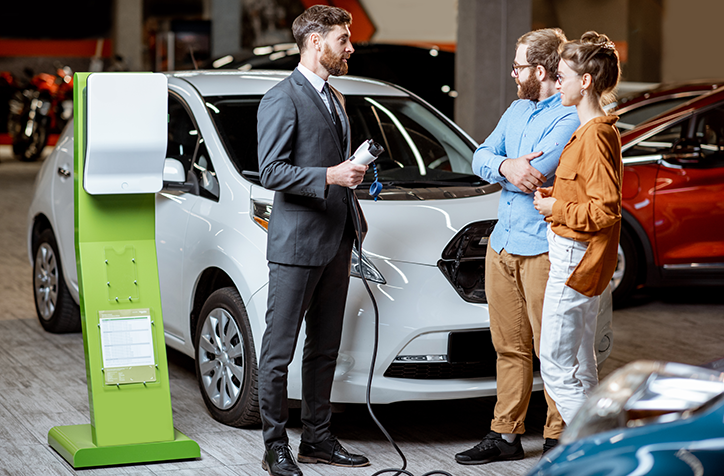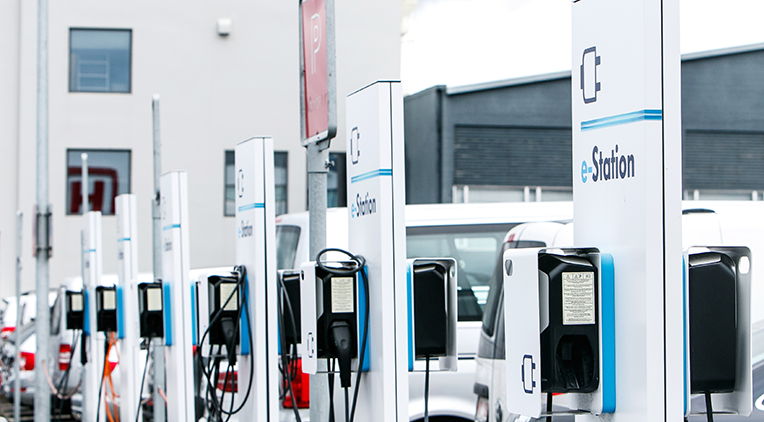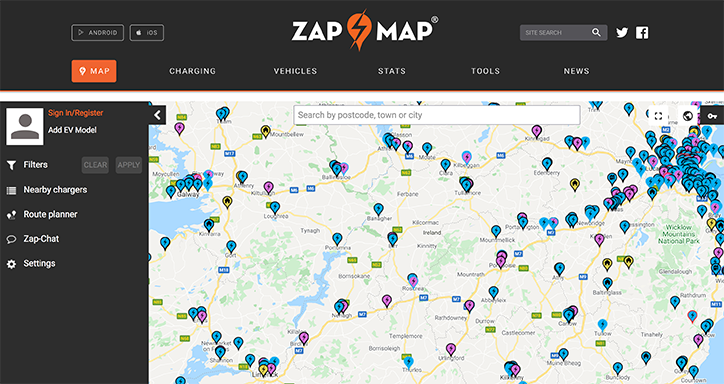Government pledges to increase support for the use of electric vehicles (EVs) in Ireland are some of the more positive headlines we’ve seen in months gone by. However, while most of us are happy to hear about any progression of ‘clean’ transport, there are still some significant practical reservations that the driving public have about EVs.
While almost 50% of the people we surveyed said they would consider purchasing an EV in the future, they still wouldn’t choose one for their next vehicle. An additional 37% stated they would never want an electric car. The main concerns for both groups were cost and charging. Specifically, the cost of purchasing an EV, the distance it can travel and the availability of charging points.
Bearing in mind the government has already announced a ban on the sale of all new petrol and diesel cars from 2030, EV cost and charging issues are a high priority for the industry and indeed the country. While we can’t subsidise your next car purchase, or install you a free, mobile, charging point! We can at least give you a realistic, current overview of these issues and point you to the best advice on the web…
The simple fact is, EVs are still significantly more expensive than their traditional-fuelled counterparts. The cheapest four-door EV available in Ireland today is substantially more than double its petrol-fuelled equivalent. Although tax is substantially lower and charging costs are comparably cheap for EV owners, the huge initial pay-out is an understandable barrier to the majority of buyers.
We are all hoping to see this cost-gap decrease over the next few years, but until then, if you are keen to move over to an EV, make sure you keep an eye on any scrappage schemes and the government subsidies that could actually make your switch affordable. There are several EV related grants currently available including €5,000 towards the purchase of a new EV (with an eligibility price cap of €60,000) and up to €600 to install a home charger unit for new and second-hand EVs or plug-in hybrids. All the government EV grant information is available on the Sustainable Energy Authority of Ireland website. There is also a useful calculator tool to compare possible electric, petrol or diesel vehicles purchases and see how much you can save in costs and emissions.

You may find lease options that are more competitive in comparison to purchasing an EV. A growing number of leasing companies in Ireland are keen to satisfy the demand for greener transport and while prices are currently high across the board, deals are out there as competition increases. Lease Plan is a good place to start.
If waiting feels like your only option for now, don’t be too disheartened. There’s a wide range of hybrid vehicles that may just be the perfect stepping stone to you owning a full EV. There will also be a growing market of second-hand EVs as time goes on, as well as more competitive pricing for new models as other manufacturers throw their hat/wheel into the ring!
According to the Association for Renewable Energy and Clean Technology, which assesses the country’s readiness in meeting its 2030 decarbonisation targets and compares it to other European countries, Ireland has ranked above average and ahead of our counterparts in the UK. However, we’re not going to argue that there’s still a lot of work still to be done supporting the use of EVs… Ireland was found to be lagging behind other European counterparts on the implementation of the EV charging infrastructure.
We currently have around 2,000 public charging points for EVs, most of which are within urban areas. If the proposed goals for decarbonising Ireland’s transport system are to be met it has been estimated the country will need 30,000 EV charging points by 2030, which may prove a tall order. Although, like the majority, we’d be delighted to be proved wrong.
The good news is that things are improving all the time, particularly smaller issues such as power and payment systems. There is also some great advice out there – the Irish EV Owners Association website covers everything from the latest EV news to charging etiquette and EV driving best practise!

There are a few websites dedicated to making your charging needs as easy to plan as possible, including OpenChargeMap and PlugShare. We like Zap Map, which gives easy-to-access, real-time information on charging point coverage and cost across Ireland.

Those who can afford to purchase a new EV, and may even be happy with the availability and ease of charging, still have concerns over the range current models can offer and the whole life of the battery.
The reason charging availability has proved to be such a significant issue is down to the physical distance one full charge can take you, otherwise known as an EV’s ‘range’. While there is still work to be done, these figures have improved massively over the relatively short time EVs have been available. The Tesla S is said to be able to travel over 400 miles on a single charge – impressive by any standard! Of course the average EV figure is much lower, but now stands at a decent 193 miles, which also takes into consideration real life factors such as heavy loads, changing speeds, hilly terrain and bad weather, which manufacturers’ advertised range figures don’t.
If and when you choose an EV, be sure to look into the real life range mileage figure and ensure it will suit the journeys you will be doing most frequently.
Every type of battery degrades over time. But rather than worrying your EV is going to mimic your mobile phone, you can be assured that, as long as they are treated correctly, most modern lithium-ion units are likely to last the lifetime of the car.
When EVs first entered the mass market many manufacturers specified an 8 year battery warranty, however, data so far has shown the majority of these batteries are outperforming that prediction. Manufacturers keen to offer extra reassurance to customers are now offering extended warranties on their EV batteries from between 100,000 to 150,000 miles. Most also include a maximum allowable capacity; so if their function drops below 70 or 75% during the period of the warranty, you’ll receive an automatic replacement.
There are a few simple things you can do to look after battery life, such as avoiding charging beyond 80% or below 20%, which some EVs manage automatically, avoiding frequent rapid-charging and in general keeping your battery cool (a rare benefit of the UK’s climate!). As well as assuring information on EV battery tech, Autocar has some great advice on how to look after your EV battery, from how you charge it to how you drive.

CarTakeBack are already several years into the work related to EV end-of-life and we continue to invest in training our vehicle recycling partners in how to safely handle EVs and hybrids. This means, today, we can provide safe and effective EV recycling in Ireland.
Not only do we ensure all electric and hybrid vehicle batteries are properly, efficiently and safely recycled in line with the law, we are constantly looking to improve that process and support the organisations developing new recycling solutions.
If you’re interested in the topic of EVs, you can also check out our blog on the myths surrounding the environmental credentials of EVs




